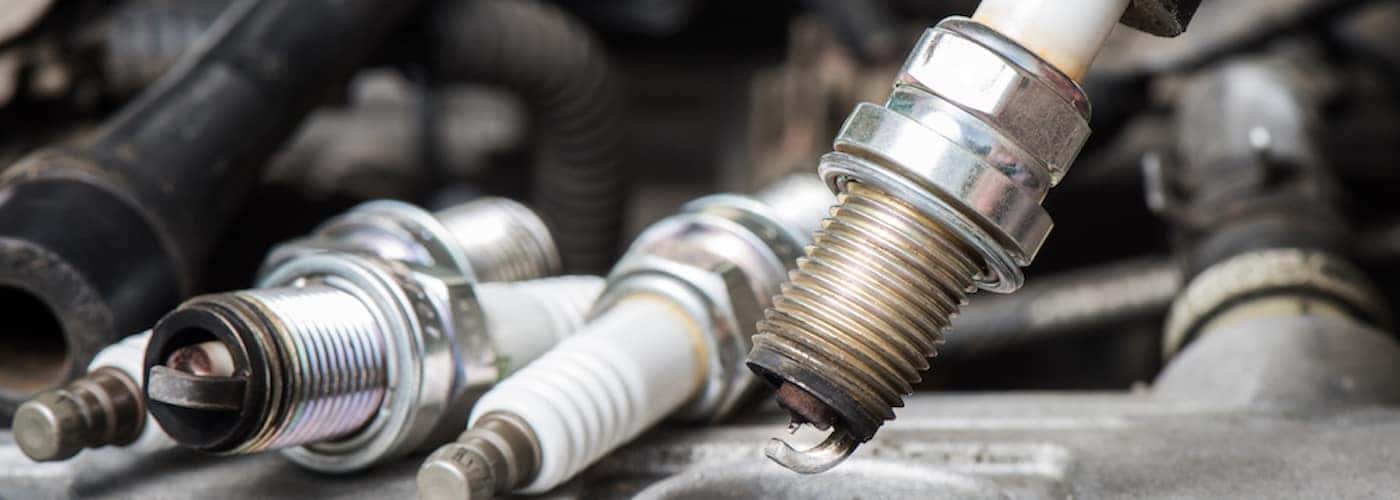Spark plugs should be changed every 30,000 to 50,000 miles for optimal engine performance and fuel efficiency. Regular spark plug maintenance is crucial to ensure a reliable ignition system and smooth running engine.
Neglecting to replace spark plugs at the recommended intervals can lead to poor fuel economy, misfires, and engine damage. By changing spark plugs regularly, you can maximize your vehicle’s performance and reduce the risk of costly repairs.

Credit: www.bmwofweststlouis.com
Importance Of Spark Plug Maintenance
Regular maintenance of spark plugs is essential in ensuring optimal engine performance and fuel efficiency. It is generally recommended to change spark plugs every 30,000 miles, but this can vary depending on the type of vehicle and driving conditions. Keeping up with spark plug maintenance can prevent misfires, improve ignition, and prolong the life of the engine.
Effect On Engine Performance
Spark plug maintenance plays a crucial role in ensuring optimal engine performance. Spark plugs are responsible for igniting the fuel-air mixture in the engine’s combustion chamber, creating the power that propels the vehicle. When spark plugs are worn or dirty, they can lead to a decline in engine performance. This decline can result in poor acceleration, misfires, and even engine stalling. Regularly changing your spark plugs can help maintain the engine’s performance and keep it running smoothly.Effect On Fuel Efficiency
The condition of your spark plugs can also have a significant impact on fuel efficiency. When the spark plugs are in good condition, they provide a strong and consistent spark, ensuring efficient combustion. However, over time, spark plugs can become fouled or worn out. This can lead to inefficient combustion, causing the engine to consume more fuel than necessary. By regularly changing your spark plugs, you can help improve fuel efficiency and save money at the pump. Removing the worn-out spark plugs and replacing them with new ones can help maintain the engine’s performance. This simple maintenance task is vital to ensure that the engine continues to run optimally and at its full power capability. Ignoring spark plug maintenance can result in a decline in engine performance, which can lead to poor acceleration, misfires, and potential engine damage. Regularly changing spark plugs also has a positive impact on fuel efficiency. When the spark plugs are in good condition, they can provide a strong and consistent spark, facilitating efficient combustion. This leads to better fuel economy and savings at the pump. On the other hand, worn-out or dirty spark plugs can cause inefficient combustion, resulting in increased fuel consumption. Remember that spark plugs can differ in their lifespan depending on factors such as the type of spark plug, driving conditions, and the make and model of your vehicle. It is essential to consult your vehicle’s owner manual or a trusted mechanic to determine the recommended maintenance schedule and the appropriate spark plugs for your specific vehicle. In summary, regular spark plug maintenance is important for engine performance and fuel efficiency. By keeping your spark plugs in good condition and replacing them when necessary, you can help ensure that your engine runs smoothly, optimally, and efficiently. So don’t overlook this simple yet crucial maintenance task and enjoy the benefits of a well-maintained engine!Signs That Spark Plugs Need Changing
Spark plugs need changing if you notice signs such as rough idling, misfires, poor fuel efficiency, or difficulty starting your vehicle. Regularly replacing spark plugs ensures optimal engine performance and fuel economy.
When it comes to the maintenance of your vehicle, one crucial aspect to keep an eye on is your spark plugs. Spark plugs play a vital role in the proper functioning of your engine. Over time, they can become worn out or dirty, leading to various issues. It is important to know the signs that indicate your spark plugs need changing, so you can address the problem in a timely manner and avoid further damage to your engine.
Rough Idle And Acceleration
If you notice that your vehicle is experiencing a rough idle or struggling to accelerate smoothly, it could be a clear sign that your spark plugs are due for a change. Spark plugs are responsible for igniting the air-fuel mixture in the combustion chamber, creating the necessary power for your engine to run. When spark plugs are worn out, they can misfire or fail to provide a consistent spark, resulting in a rough idle and sluggish acceleration.
Engines depend on a smooth and steady flow of power to operate efficiently, and faulty spark plugs can disrupt this process. As a result, your vehicle may jerk or hesitate when you try to accelerate, making it harder to maintain a steady speed on the road. Ignoring this issue can not only impact your driving experience but also lead to further problems with your engine’s performance, fuel efficiency, and overall longevity.
Engine Misfires
An engine misfire is another common sign that it’s time to change your spark plugs. When a spark plug fails to ignite the air-fuel mixture at the right time, the engine can misfire, causing a range of issues. You may experience a noticeable vibration or shaking sensation, especially while idling or when driving at low speeds.
A misfiring engine can also result in a loss of power and reduced fuel efficiency. If left unaddressed, it can even cause damage to other engine components, such as the catalytic converter. Therefore, if you encounter frequent misfires, it is essential to have your spark plugs inspected and replaced, if necessary, to restore the smooth operation of your engine.
In conclusion, paying attention to the signs that indicate your spark plugs need changing is crucial for maintaining the performance and longevity of your vehicle. Keep an eye out for rough idle and acceleration issues, as well as engine misfires, as these are clear indications that it’s time to replace your spark plugs. By staying proactive with spark plug maintenance, you can ensure your engine runs smoothly and efficiently, saving you from costly repairs down the road.
How Often Should You Change Spark Plugs?
When it comes to maintaining your vehicle, one crucial aspect to consider is the regular replacement of spark plugs. Spark plugs play a vital role in the ignition process, providing the spark that ignites the air-fuel mixture in the combustion chamber. Over time, spark plugs can wear out, leading to inefficiency and potential engine issues. So, how often should you change spark plugs?
Manufacturer’s Recommendations
Manufacturers often provide specific recommendations for when spark plugs should be changed. These recommendations can typically be found in the vehicle’s owner’s manual or on the manufacturer’s website. It’s essential to adhere to these guidelines to ensure optimal performance and longevity of your vehicle’s engine.
Consideration Of Mileage And Age
Aside from manufacturer recommendations, the mileage and age of your vehicle should also be considered when determining how often to change spark plugs. As a general rule of thumb, spark plugs should be replaced every 30,000 miles. However, if your vehicle is older or you experience symptoms such as rough idling or poor acceleration, it may be necessary to change the spark plugs more frequently.

Credit: www.mercedesbedford.com
Benefits Of Regular Spark Plug Replacement
Regular spark plug replacement offers numerous benefits for your vehicle’s performance and efficiency.
Improved Engine Performance
Frequent spark plug changes help maintain smooth engine operation and optimal combustion.
Enhanced Fuel Efficiency
Fresh spark plugs contribute to better fuel economy by ensuring complete combustion.
Expert Tips For Changing Spark Plugs
Use Of Correct Tools
Ensure you have the right tools on hand before starting the spark plug replacement process.
Proper Installation
Avoid over-tightening spark plugs as it may cause damage. Use a torque wrench to ensure correct tightness.

Credit: www.acuraturnersville.com
Frequently Asked Questions On How Often Change Spark Plugs
How Do I Know If My Spark Plugs Need Changing?
To determine if your spark plugs need changing, watch out for signs like difficulty starting your vehicle, decreased fuel efficiency, rough idling or acceleration, and misfiring. If you notice any of these issues, it’s recommended to have your spark plugs checked and possibly replaced by a professional mechanic.
What Are The Symptoms Of Bad Spark Plugs?
Common symptoms of bad spark plugs include rough idle, difficulty starting, poor fuel economy, engine misfires, and lack of acceleration. Additionally, you may notice a noticeable drop in power and increased exhaust emissions. Regular inspection and replacement can prevent further issues.
How Long Should My Spark Plugs Last?
Spark plugs typically last between 30,000 to 100,000 miles, depending on the type of plug and driving conditions. Regular maintenance can help extend their lifespan.
What Happens If You Don’t Change Spark Plugs?
Neglecting spark plug changes can lead to poor fuel economy, misfiring, engine performance issues, and potential engine damage.
Conclusion
Regular spark plug changes are crucial for engine performance and fuel efficiency. By following manufacturer recommendations, you can prevent costly repairs and ensure smooth driving. Stay attentive to your vehicle’s performance indicators and schedule timely maintenance to keep your engine running smoothly.
With regular attention to spark plug maintenance, you can enjoy optimal driving experiences and save on fuel costs over time.
